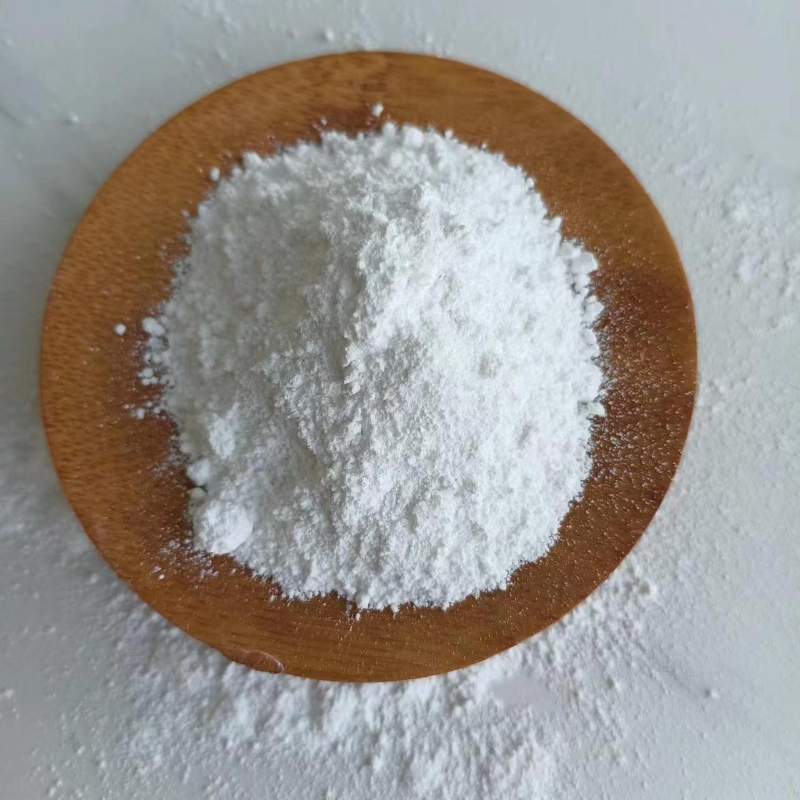-
Categories
-
Pharmaceutical Intermediates
-
Active Pharmaceutical Ingredients
-
Food Additives
- Industrial Coatings
- Agrochemicals
- Dyes and Pigments
- Surfactant
- Flavors and Fragrances
- Chemical Reagents
- Catalyst and Auxiliary
- Natural Products
- Inorganic Chemistry
-
Organic Chemistry
-
Biochemical Engineering
- Analytical Chemistry
- Cosmetic Ingredient
-
Pharmaceutical Intermediates
Promotion
ECHEMI Mall
Wholesale
Weekly Price
Exhibition
News
-
Trade Service
In yesterday’s "Weekly Medical Questions" column, we pushed the latest issue of NEJM Knowledge+ Question of the Week
.
For patients with multiple diseases and liver cirrhosis, what is the most suitable treatment for their acute kidney injury? Today, we announce the answer
.
Do you see the answer? Of course, answering right is not the goal, but mastering the essentials and expanding knowledge is the kingly way
.
Answer: Start the treatment with midodrine and octreotide.
Key points of study: The initial treatment drugs for patients with mild hepatorenal syndrome include albumin, midodrine and octreotide
.
If conditions permit, you can also choose terlipressin
.
Knowledge expansion The patient may have hepatorenal syndrome (HRS)
.
HRS can occur in patients with liver cirrhosis and portal hypertension when the increase in the level of vasodilators causes the vasodilation of organs and the decrease of systemic vascular resistance
.
The retention of blood in the blood vessels of the organs leads to a significant decrease in the effective circulating blood volume, which leads to renal vasoconstriction and renal hypoperfusion
.
The characteristics of HRS include: elevated serum creatinine level on the basis of chronic liver disease, normal urinalysis and urine sediment examination, and urine sodium level <10 mg/L
.
There are two types of HRS: Type 1 HRS is characterized by rapid and progressive deterioration of renal function, which is defined as a serum creatinine increase of at least 2 times within 2 weeks, and >2.
5 mg/dL (indicating a 50% reduction in creatinine clearance)
.
Type 2 HRS does not have a course of rapid and progressive deterioration of renal function, and the condition is milder than type 1
.
It is difficult to distinguish HRS from prerenal azotemia caused by diuretics because the laboratory test results of these two diseases are similar; therefore, albumin should be given intravenously (1g/kg body weight, up to 100 g per day) Replenish blood volume in the form of albumin for at least 2 days
.
If albumin cannot correct abnormal renal function, then the diagnosis is likely to be HRS
.
According to the time of symptom onset, biochemical indicators, and the ineffectiveness of albumin treatment, the patient should be diagnosed with type 1 HRS
.
The treatment of HRS includes treatment of various potential causes and treatment for HRS itself
.
The causes of HRS include spontaneous bacterial peritonitis (as in this case), other infections, and gastrointestinal bleeding
.
Spontaneous bacterial peritonitis can be treated with antibiotics combined with intravenous infusion of albumin
.
The initial treatment plan for HRS depends on the availability of drugs and the severity of the condition
.
Critically ill patients should receive supportive treatment with vasoconstrictors such as albumin and norepinephrine or vasopressin
.
Non-critical patients (such as this case) should receive albumin and terlipressin (the drug is not marketed in the United States) or midodrine and octreotide combined therapy
.
For patients who do not respond to drug therapy, renal replacement therapy, transjugular intrahepatic portal vena cava shunt, and liver transplantation should be considered
.
Abdominal puncture can improve renal blood flow in patients with tension ascites, but for patients with kidney damage and spontaneous bacterial peritonitis, a large amount of ascites should be avoided, because this operation can cause a large amount of fluid to transfer, leading to further decline in renal function
.
This patient has symptoms of hypovolemia and relatively low blood pressure, so intravenous furosemide should not be used for diuretic therapy; as mentioned above, stopping diuretics is an important part of the diagnosis and treatment of HRS
.
The patient’s clinical presentation is typical of HRS, so there is no indication for a kidney biopsy
.
If the patient has active urine sediment or significant proteinuria, a kidney biopsy may be considered
.
【Weekly Medical Questions】will continue to be updated
.
What do you want to see or learn? Please tell us through the comments and look forward to your precious comments and suggestions
.
References 1.
Ginès P and Schrier RW.
Renal failure in cirrhosis.
N Engl J Med 2009 Sep 24; 361:1279.
2.
European Association for the Study of the Liver.
EASL clinical practice guidelines for the management of patients with decompensated cirrhosis .
J Hepatol 2018 Aug; 69:406.
3.
Runyon BA.
American Association for the Study of Liver Diseases practice guideline: management of adult patients with ascites due to cirrhosis 2012.
4.
https:// /default/files/2019-06/141020_Guideline_Ascites_4UFb_2015.
pdf Copyright information Call for drafts
.
The Chinese translation of the full text and the included diagrams are exclusively authorized by the NEJM Group
.
If you need to reprint, please leave a message or contact nejmqianyan@nejmqianyan.
cn
.
Unauthorized translation is an infringement, and the copyright owner reserves the right to pursue legal liabilities
.
.
For patients with multiple diseases and liver cirrhosis, what is the most suitable treatment for their acute kidney injury? Today, we announce the answer
.
Do you see the answer? Of course, answering right is not the goal, but mastering the essentials and expanding knowledge is the kingly way
.
Answer: Start the treatment with midodrine and octreotide.
Key points of study: The initial treatment drugs for patients with mild hepatorenal syndrome include albumin, midodrine and octreotide
.
If conditions permit, you can also choose terlipressin
.
Knowledge expansion The patient may have hepatorenal syndrome (HRS)
.
HRS can occur in patients with liver cirrhosis and portal hypertension when the increase in the level of vasodilators causes the vasodilation of organs and the decrease of systemic vascular resistance
.
The retention of blood in the blood vessels of the organs leads to a significant decrease in the effective circulating blood volume, which leads to renal vasoconstriction and renal hypoperfusion
.
The characteristics of HRS include: elevated serum creatinine level on the basis of chronic liver disease, normal urinalysis and urine sediment examination, and urine sodium level <10 mg/L
.
There are two types of HRS: Type 1 HRS is characterized by rapid and progressive deterioration of renal function, which is defined as a serum creatinine increase of at least 2 times within 2 weeks, and >2.
5 mg/dL (indicating a 50% reduction in creatinine clearance)
.
Type 2 HRS does not have a course of rapid and progressive deterioration of renal function, and the condition is milder than type 1
.
It is difficult to distinguish HRS from prerenal azotemia caused by diuretics because the laboratory test results of these two diseases are similar; therefore, albumin should be given intravenously (1g/kg body weight, up to 100 g per day) Replenish blood volume in the form of albumin for at least 2 days
.
If albumin cannot correct abnormal renal function, then the diagnosis is likely to be HRS
.
According to the time of symptom onset, biochemical indicators, and the ineffectiveness of albumin treatment, the patient should be diagnosed with type 1 HRS
.
The treatment of HRS includes treatment of various potential causes and treatment for HRS itself
.
The causes of HRS include spontaneous bacterial peritonitis (as in this case), other infections, and gastrointestinal bleeding
.
Spontaneous bacterial peritonitis can be treated with antibiotics combined with intravenous infusion of albumin
.
The initial treatment plan for HRS depends on the availability of drugs and the severity of the condition
.
Critically ill patients should receive supportive treatment with vasoconstrictors such as albumin and norepinephrine or vasopressin
.
Non-critical patients (such as this case) should receive albumin and terlipressin (the drug is not marketed in the United States) or midodrine and octreotide combined therapy
.
For patients who do not respond to drug therapy, renal replacement therapy, transjugular intrahepatic portal vena cava shunt, and liver transplantation should be considered
.
Abdominal puncture can improve renal blood flow in patients with tension ascites, but for patients with kidney damage and spontaneous bacterial peritonitis, a large amount of ascites should be avoided, because this operation can cause a large amount of fluid to transfer, leading to further decline in renal function
.
This patient has symptoms of hypovolemia and relatively low blood pressure, so intravenous furosemide should not be used for diuretic therapy; as mentioned above, stopping diuretics is an important part of the diagnosis and treatment of HRS
.
The patient’s clinical presentation is typical of HRS, so there is no indication for a kidney biopsy
.
If the patient has active urine sediment or significant proteinuria, a kidney biopsy may be considered
.
【Weekly Medical Questions】will continue to be updated
.
What do you want to see or learn? Please tell us through the comments and look forward to your precious comments and suggestions
.
References 1.
Ginès P and Schrier RW.
Renal failure in cirrhosis.
N Engl J Med 2009 Sep 24; 361:1279.
2.
European Association for the Study of the Liver.
EASL clinical practice guidelines for the management of patients with decompensated cirrhosis .
J Hepatol 2018 Aug; 69:406.
3.
Runyon BA.
American Association for the Study of Liver Diseases practice guideline: management of adult patients with ascites due to cirrhosis 2012.
4.
https:// /default/files/2019-06/141020_Guideline_Ascites_4UFb_2015.
pdf Copyright information Call for drafts
.
The Chinese translation of the full text and the included diagrams are exclusively authorized by the NEJM Group
.
If you need to reprint, please leave a message or contact nejmqianyan@nejmqianyan.
cn
.
Unauthorized translation is an infringement, and the copyright owner reserves the right to pursue legal liabilities
.







